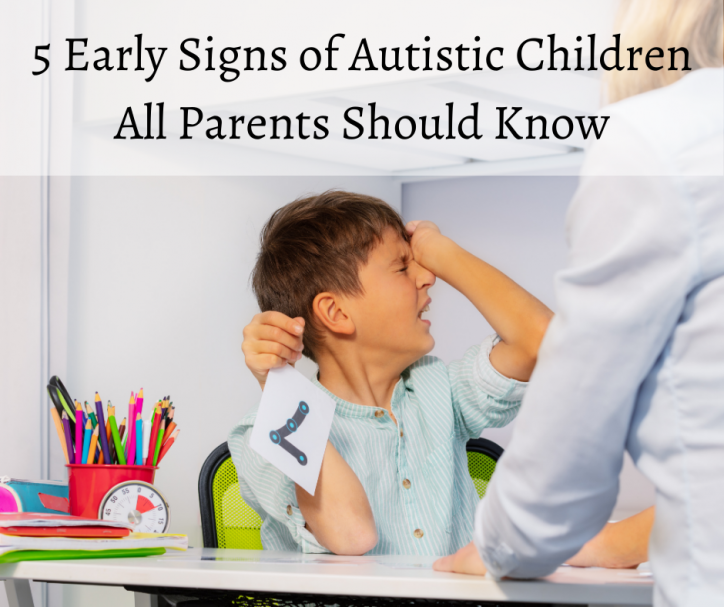5 Early Signs of Autism
Autism is a developmental disorder often characterized by impaired social ability, obsessive behavior and delays in language development. There has been significant alarm surrounding the growing rates of Autistic Children. According to the Centers for Disease Control and Prevention, one out of every 68 American children has the disorder. This is a considerable increase of roughly 30 percent from two years ago. Researchers are still uncertain as to what causes the condition. A variety of factors may come into play. There are several options to help a child lead a full and happy life: visit this website to learn more.
Symptoms that an autistic child displays can be can be devastating. Every parent wants their child to grow up normal and happy. However, Autism can mean a lifetime of hardship for many kids. The sooner the condition is diagnosed, the sooner you can begin treatment. Here are 5 Early Signs of Autistic Children That all Parents Should Know which can reveal if a doctor visit is necessary.
Not Making Eye Contact
One of the biggest signs of autism is an inability or unwillingness to make eye contact with others, especially during conversation. Many autistic children feel very uncomfortable making eye contact.
Researchers suspect that not making eye contact is caused by deficiencies in neuronal mirroring. In normal people, special “mirror neurons” make people unconsciously aware of cues such as eye contact. In autistic people however, these neurons are believed to be dysfunctional.
No Social Reciprocation
Autism is often most apparent in social situations, such as playing with other children. They fail to grasp the give and take aspects of socialization.
As a result, they may appear selfish or domineering. An autistic child may display inappropriate listening skills and or engage in one-sided conversations. They may be unaware that the other child is disinterested in what they’re saying.
Social Withdrawal
One of the first things many parents notice with their autistic child is that he or she often withdraws into their own little world. When behavioral therapy and social skills training is started at an early age, the child becomes less likely to display this behavior over time, however.
Stereotypical and Repetitive Behavior
Psychologists have known for a long time that most autistic kids don’t tend to engage in spontaneous play with other children. For instance, when a child does engage in play, he often appears rigid or rule-bound and may involve repetitive, stereotypical actions.
This behavior can include lining up items, organizing things by color or size and spinning in circles. If the child plays video games, they may go about it in a compulsive, highly focused or obsessed fashion.
Problems With Change
Autistic children have a very difficult time dealing with changes in environment, routine, and even clothing. As a result, they become confused, frustrated or angered by change. It’s not uncommon for them to lash out or have an emotional meltdown when these changes occur because changes occur suddenly and unexpectedly.
Autism is a serious condition that can have lasting negative effects on interpersonal relationships, school and home life. As a result, their behavior can lead to problems with work, developing friendships and maintaining successful romantic relationships. If you notice any of these signs in your child, it’s recommended you take them to a doctor for diagnosis. This way, you can begin treatment and improve their ability to lead a happy, functional and successful life.


So great you posted this as it is something we all are concerned about having children. Great to know the warning signs
Sandra K VanHoey, My grandson is on the spectrum so this is something close to my heart.